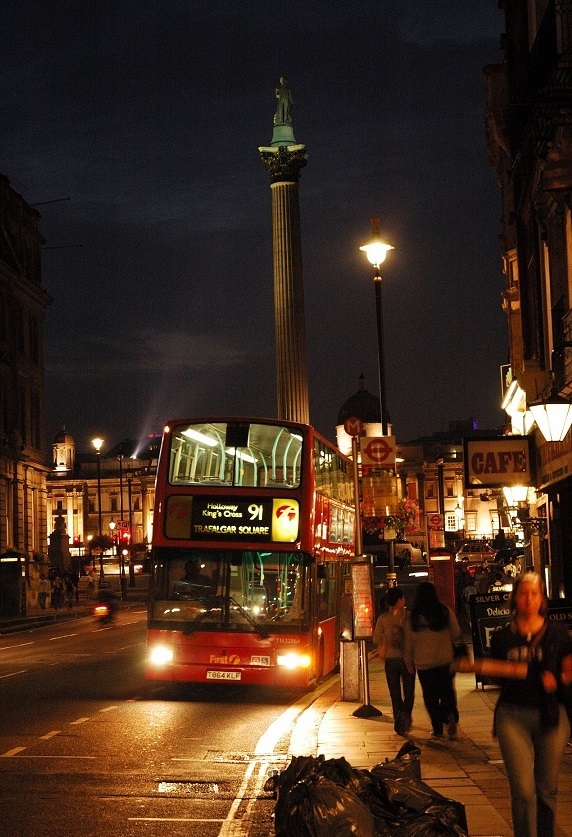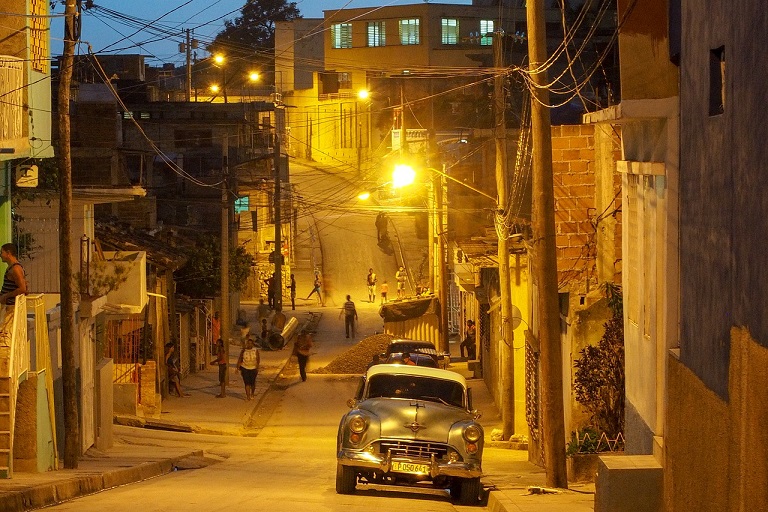She is a Spanish journalist whose passion, to learn about and experience life up close and in person, led her to emigrate to this island in the Caribbean.
 Araceli Oliva
Araceli Oliva
Born in the Canaries, Guillen finished her degree in journalism, which she had been studying for in Madrid, two years ago. Feeling desperate in the face of Spain’s dismal economic situation and with hopes of continuing her studies, she emigrated to Cuba to study for a masters in sociology at the University of Havana.
As such, the young journalist is joining a long list of other Spaniards who have decided to “cross the pond” to try their luck in the Americas and in particular Latin America. However, what makes her story so unique is the fact that she chose Cuba. “Cuba is a safe and stable country and boasts one of Latin America’s highly regarded academic institutions in the University of Havana. I decided to extend my knowledge and continue my training as a journalist,” she explained.
Moreover, she remarks that it is necessary to live in the country to really get to know it because any information gleaned by way of the media – both foreign as well as Cuba’s own official press – is not always wholeheartedly reliable.
And so, this opportunity has afforded her the possibility to form an independent opinion and appreciate both the country’s good and bad points.
 For instance, she fully acknowledges the achievements of the revolution: the best example of this is to be found with the regime’s doctors.
For instance, she fully acknowledges the achievements of the revolution: the best example of this is to be found with the regime’s doctors.
“Along with other professionals, Cuban doctors are more or less considered heroes. Given the limited or non-existent resources at their disposal, they are somehow able to “steal a march” on science itself and determine promptly and authoritatively
Access to education, housing and culture has also figured among the achievements of the revolution as Ondina points out: “So far as culture is concerned, Cuba represents what might be termed a “universal” model: it is available to all sectors of society regardless.”
However, despite their achievements, Cuba’s government has been accused of restricting political liberty and subjecting the country to poverty.
As regards this, Ondina acknowledges that “Food is an issue which worries every Cuban, with “lack” or “scarcity” being the words most frequently used in her opinion.”
Moreover, “government measures to ensure Cubans gain equal access to resources are proving “ineffective”: improvements are needed along with new proposals to ensure that all sectors of society are included in the government’s plans,” she adds. Cuba’s government acknowledges these economic problems and asserts that they are a result of the economic embargo imposed by the US since 1960. Conversely, their opponents lay the blame at the door of the socialist revolution.
Relations between the US and Cuba seem to have improved this year after the recent economic agreement reached between the two countries.
However, although initially it was held up as a move which would benefit Cubans, many critics have indicated that it will only bring economic benefits for American businesses.
 “The re-establishing of relations was welcomed by all sectors of society as a positive step which acted as a basis for re-establishing the dialogue which had been lost. Despite this positive step, in practice, little has been agreed and it has been of little consequence to the man in the street,” remarks the journalist.
“The re-establishing of relations was welcomed by all sectors of society as a positive step which acted as a basis for re-establishing the dialogue which had been lost. Despite this positive step, in practice, little has been agreed and it has been of little consequence to the man in the street,” remarks the journalist.
For the moment, the situation in Cuba has not changed and this is why Ondina has decided to return to the Canaries in June. However, she will emigrate again and yet again her eyes are firmly fixed on Latin America. “Ecuador comes across as the safest and most viable option in Latin America at the moment. The country continues to grow under Rafael Correa’s presidency : she has not only managed to bring diversification to the economy and make it competitive but also raise people’s wages,” concludes the young journalist.
(Translated by Nigel Conibear – Email: nigelconibear@gmail.com) – Photos: Pixabay












.jpg)












